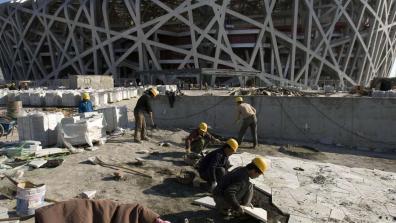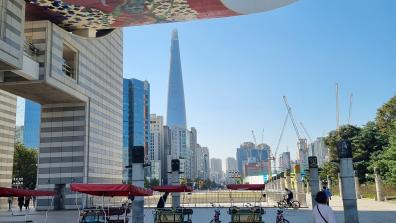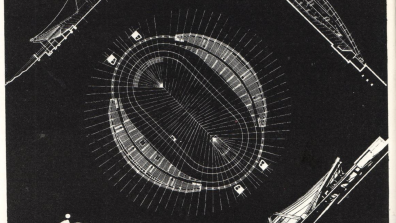Round table: Olympic Games and urban planning - Beijing, Seoul and Moscow.
As the Paris 2024 Olympic Games approach, this roundtable will look at urban planning in host cities. Three metropolises, Beijing, Seoul and Moscow, will be the case studies, allowing us to look at different territories, political contexts and legacies.
In the presence of:
- Françoise Ged, head of the China Observatory at the Cité de l'architecture et du patrimoine and lecturer at Inalco;
- Alain Delissen, director of studies at EHESS and member of the China, Korea, Japan Research Center (CCJ-CRC);
- Paul Wolkenstein, PhD in History, Societies and Civilizations (CREE / Inalco) and HMONP architect.
Moderator: Mathilda Lacroix, head of the events and cultural action department at Inalco.

Françoise Ged / Beijing
On July 13, 2001, Beijing was chosen to host the Olympic Games. The city was about to undergo a lightning-fast facelift, for the opening ceremony set for 08.08.08, under the lucky auspices of the number "8". And yet, the year had begun with sad omens: a devastating snowstorm in the south of the country, violently repressed demonstrations in Tibet in March, a deadly earthquake in Sichuan in May.
The beginning of the 21st century also saw China join the World Trade Organization and Shanghai chosen to host the 2010 World Expo, signals of openness and aspirations for a better life in cities that have become international metropolises. Two decades later, the years of growth behind us, what new aspirations?

Alain Delissen / Seoul
A generation later in 2024, if we stick to territories, sizes, landscapes, underground arrangements, is it really so certain that the 1988 Olympic Games were for Seoul - the word meaning "capital" in Korean - the magical operator - its magician architects, its magified - of the powerful metamorphosis trumpeted at the time?
"Sŏur-ŭn segye-ro Segye-nŭn Sŏul-lo" (Seoul, for the world; Le Monde in Seoul). A question of scale: which Seoul and which world were we talking about? Are we? Will we? Would we speak, if we had it to do over again...

Paul Wolkenstein / Moscow
In 1980, the Summer Olympics were held in Moscow against a singular geopolitical backdrop. Boycotted by over 50 states (including the USA, West Germany and Japan) due to the Soviet invasion of Afghanistan in 1979, the capital of the Soviet Union was nevertheless transformed territorially and architecturally to host the event. Already equipped with numerous infrastructures, Moscow's urban fabric was nonetheless the scene of new construction sites characteristic of late-Soviet architecture: sports facilities, an Olympic village, a television studio, hotel complexes and an airport terminal were all built.
.

